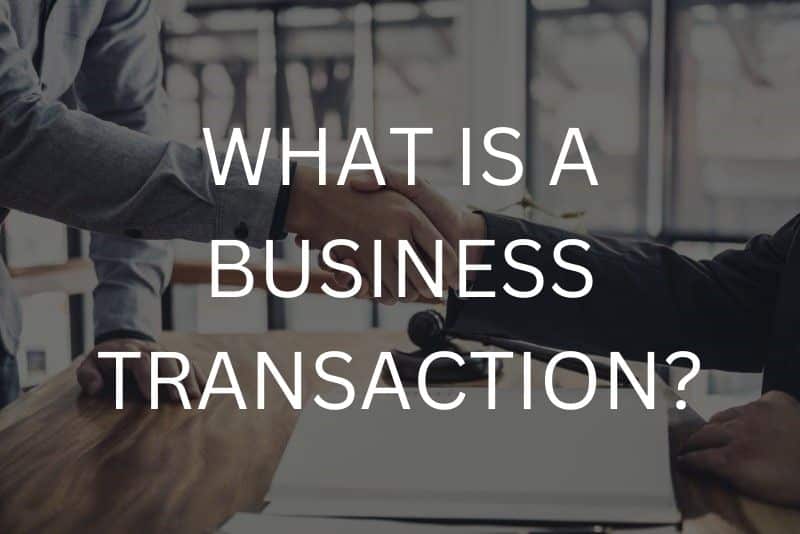You start a business because you are passionate about the service or product you deliver, not because you want to figure out what your purchase agreements should look like or because you always wanted to author an employee handbook. Luckily for you, there are folks like the attorneys at Downey & Associates, PC who are passionate about agreements, handbooks and all of the other legal elements that can protect your business and help it thrive.
From our Denver office, we partner with business owners to address the legal aspects of their important business transactions. Our firm strives to offer the highest level of quality-driven legal services to both one-person start-ups and multi-national enterprises. If you do business in Colorado, contact us to learn more about how we can help you with your most basic and complex business matters.
What is a Business Transaction?
Every business has a series of cogs and gears that need to be moving smoothly to keep the customer happy and to keep the business profitable. Each business is unique, but you might need mechanisms in place to hire and fire employees, to contract with your suppliers or vendors, or to lease your office space. Each of those interactions is a business transaction that may require legal guidance.
With more than 35 years of experience and hands-on involvement in thousands of business transactions, our attorneys can help you protect your investment, your livelihood and your dreams by putting the appropriate legal protections in place for each of your business transactions.
We help our clients with a variety of issues, including:
- Business entity selection and formation (LLCs and partnerships, for example)
- Employee contracts, non-compete and confidentiality agreements
- Leases and rental agreements
- Equipment and property purchases
- Purchase and sales agreements
- Service contracts
- Mergers and acquisitions
- Various contract negotiations
- Commercial litigation, mediation or arbitration
Related: Can Verbal Agreements Be Legally Binding in Business Transactions?
Contact Us
To speak with one of our knowledgeable business transaction attorneys today, call 303-813-1111 or contact us online. We understand your bottom-line challenges and we are dedicated to providing responsive, personalized service to business owners in a cost-effective manner.
Frequently Asked Questions
Why is it important to hire a business transaction attorney in Denver?
Hiring a business transaction attorney in Denver is crucial for protecting your business from legal pitfalls. These attorneys have in-depth knowledge of Colorado laws and can guide you through complex transactions, ensuring compliance and safeguarding your business interests.
What types of business transactions require legal assistance?
Legal assistance is essential for various business transactions, including mergers and acquisitions, partnership agreements, commercial leases, and employee contracts. A business transaction attorney in Denver can provide the necessary legal support to handle these transactions efficiently and effectively.
Are electronic signatures and digital contracts enforceable in Colorado, and what formalities still matter?
Yes, federal and Colorado law recognize electronic records and signatures as legally valid if basic requirements are met. The federal ESIGN Act confirms that a signature or record cannot be denied legal effect solely because it is electronic. Colorado’s Uniform Electronic Transactions Act provides similar recognition and sets rules for attribution, retention, and evidentiary use. Parties still need clear consent to transact electronically and reliable methods to attribute signatures. Notarization and acknowledgments can also be done electronically if requirements are satisfied. Statutory references explain these rules in detail.
When does the UCC require a written contract for the sale of goods, and what must it include?
The UCC statute of frauds generally requires a signed record for sales of goods priced at 500 dollars or more. The writing must indicate that a contract was made and be signed by the party to be charged, with quantity terms sufficiently stated. There are limited exceptions like merchant confirmations and specially manufactured goods. Even with a writing, other UCC provisions govern formation, gap fillers, and performance. Using clear terms on quantity, delivery, and remedies reduces disputes. Colorado’s enactment of UCC section 2-201 provides the controlling framework.
What is an earnout in a business sale, and how can we reduce disputes over it?
An earnout is a provision that pays sellers additional consideration if the business hits agreed future targets. It can bridge valuation gaps by tying part of the price to performance after closing. Disputes often arise over metrics, accounting methods, and operational control. Parties reduce risk by defining formulas, measurement periods, audit rights, and post-closing covenants with precision. It is also helpful to specify dispute resolution mechanics and tax treatment. Neutral overviews describe how earnouts work and the common pitfalls to avoid.
How can I contact a business transaction attorney in Denver for legal assistance?
If you need legal assistance with business transactions, contact us to speak with one of our experienced attorneys. We offer personalized, responsive services to help you navigate complex legal matters and achieve your business goals.
Additional Information in Denver, Colorado
- SBA - Transfer Ownership and Lease Agreements of Your Business: The U.S. Small Business Administration (SBA) offers guidance on transferring ownership of your business, including steps for valuing and selling your business. It covers legal considerations like contracts and lease agreements, ensuring a smooth transition.
- FTC Guide to Antitrust Laws - Mergers: This guide from the Federal Trade Commission provides comprehensive information on the antitrust laws applicable to mergers and acquisitions. It explains the legal framework designed to prevent anti-competitive mergers, outlines the pre-merger notification process, and details the review process conducted by the FTC to evaluate the potential impact of a merger on competition.
- IRS Information for Partnerships: This IRS page provides essential information for partnerships, including formation, tax obligations, and filing requirements. It details obtaining an Employer Identification Number (EIN), filing annual returns, and handling income, deductions, and credits.


